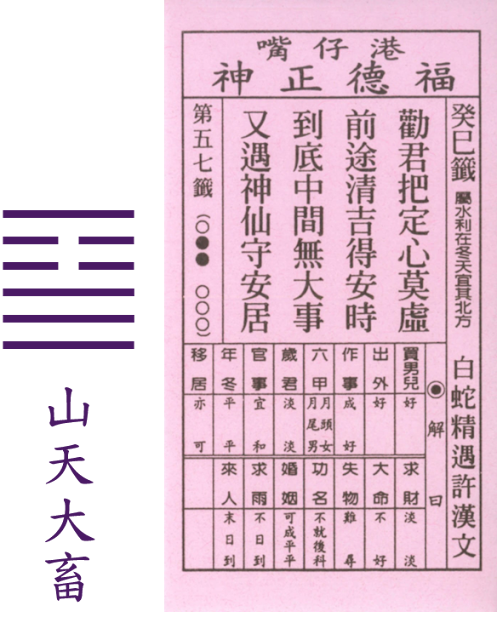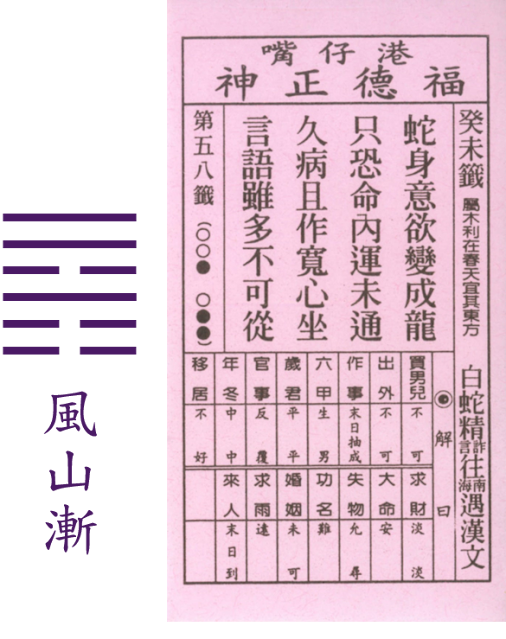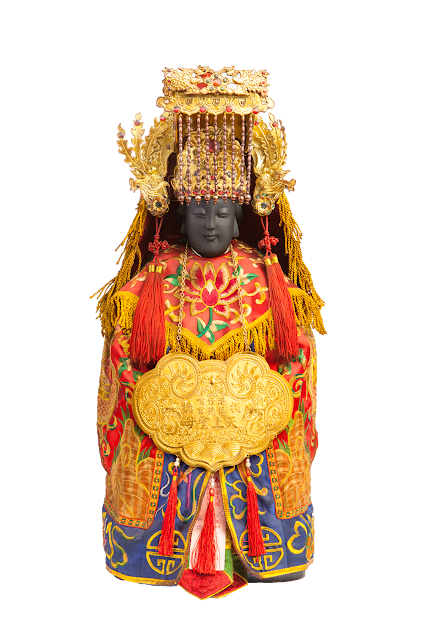第57籤 大畜卦 57th DMP: DaXu

第57籤 大畜卦 57th Divine Metaphor Paper: DaXu (The Taming Power of the Great) 大畜:利貞,不家食吉,利涉大川。 初九:有厲,利已。 九二:輿說輹。 九三:良馬逐,利艱貞。日閑輿衛,利有攸往。 六四:童牛之牿,元吉。 六五:豶豕之牙,吉。 上九:何天之衢,亨。 --------------------------- 註:大部份的易經書籍,爻詞斷點均以逗號標註。本宮以文法邏輯判斷略作調整。 --------------------------- 大畜:利貞,不家食吉,利涉大川。 大畜卦:最好的做法是 堅守正道。不要在家中自謀生計,要出來處理公眾事務食取俸祿,對大家都好。適合承擔較艱鉅的工作。 DaXu: The best course of action is to stick to the right path. Don't make a living at home, and go out to handle public affairs for a salary, which is good for everyone. Suitable for more difficult jobs. --------------------------- 初九:有厲,利已。 最初的陰爻:前方有磨難,最好停下腳步仔細思考。 Nine at the beginning means: There are tribulations ahead, so it's best to stop and think carefully. 厲: 音同「力」,當名詞用時有三種解釋。 The sound is the same as "li." There are three interpretations when used as a noun. 1.粗的磨刀石。Rough whetstone. 2.疾病、災禍。Diseases, disasters. 3.姓。Family name. 已: 音同「以」,當動詞用時有四種解釋。 The sound is the same as "yi." There are four interpretations when used a...







